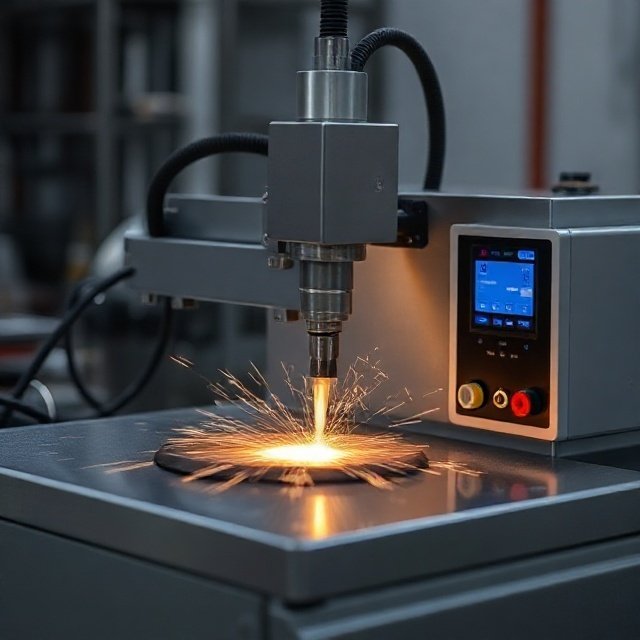Plastic Welding Machine
Plastic Welding Machine with Ultrasonic Technology: PVC, UPVC, ABS & Other Thermoplastics
In today’s fast-paced manufacturing landscape, precision, speed, and reliability are non-negotiable. Whether you’re assembling automotive components, medical devices, or consumer electronics, the demand for high-performance plastic welding machines continues to rise. Among the various welding technologies available, ultrasonic welding stands out as a game-changer-especially for thermoplastics like PVC, UPVC, ABS, and others.
What Is Plastic Welding Machine (Ultrasonic Technology)?
A plastic welding machine using ultrasonic technology is specialized equipment designed to join thermoplastic materials through high-frequency mechanical vibrations. Unlike traditional welding, which depends on external heat sources, ultrasonic welding generates frictional heat directly at the interface of two plastic parts.
Unlike traditional methods that rely on external heat sources, ultrasonic welding is fast, clean, and creates strong, clean welds without the need for additional consumables, making it ideal for mass production in industries like automotive, medical, and electronics.
This makes it ideal for applications where precision and aesthetics are critical. Modern ultrasonic plastic welding machines are designed to deliver accurate and repeatable results in just a few seconds. The process eliminates the need for adhesives, fasteners, or solvents, thereby reducing production costs and assembly time.

Compatible Materials: PVC, UPVC, ABS & More
- PVC (Polyvinyl Chloride): Widely used in plumbing, packaging, and medical devices. Ultrasonic welding ensures leak-proof seals and high structural integrity.
- UPVC (Unplasticized PVC): Known for its rigidity and chemical resistance. Ultrasonic welding offers a clean, durable bond without compromising material properties.
- ABS (Acrylonitrile Butadiene Styrene): Popular in automotive and consumer electronics. Ultrasonic welding delivers high-strength joints with excellent surface finish.
- Other Thermoplastics: Polypropylene (PP), Polycarbonate (PC), and Nylon are also compatible, making ultrasonic welding a versatile solution across industries.
Advantages of Using Ultrasonic Technology for Plastic Welding Machines
- Exceptional Speed and Efficiency: Ultrasonic plastic welding machines deliver weld cycles in less than two seconds, enabling rapid production, improved throughput, and the ability to meet large-scale manufacturing demands effectively.
- Clean and Contamination-Free Process: This advanced welding method eliminates the use of adhesives, solvents, and external heat, producing no fumes or contaminants, making it perfect for sterile and cleanroom environments.
- Reduced Energy Consumption: By using mechanical vibrations instead of continuous heating, ultrasonic welders consume significantly less energy, reducing operational costs while also supporting eco-friendly and sustainable manufacturing practices.
- Compatibility with Automation Systems: Ultrasonic plastic welding machines integrate seamlessly with automated production lines, ensuring precise, repeatable results while minimizing human errors, making them ideal for mass manufacturing and advanced industries.
- Low Maintenance and Operating Costs: With fewer moving parts and no requirement for consumables, ultrasonic welders ensure lower maintenance, reduced downtime, and longer machine life, lowering overall manufacturing and operational expenses.
- High-Quality and Durable Joints: Ultrasonic welding creates strong, seamless, and reliable joints with superior surface finish, ensuring structural integrity and aesthetics across industries like automotive, electronics, medical devices, and consumer products.
Choosing the Right Plastic Welding Machine
Selecting the right plastic welding machine is crucial for achieving efficiency, durability, and cost-effectiveness in manufacturing. Below are key factors to consider before investing:
- Material Compatibility: Always ensure the machine supports the specific thermoplastics you intend to weld, such as PVC, UPVC, ABS, PP, or PC, to guarantee strong, reliable, and consistent joints.
- Weld Size and Geometry: Different components have unique dimensions and designs. Choose equipment capable of accommodating varying weld sizes, part geometries, and thicknesses to ensure accuracy and uniform bonding across applications.
- Automation and Control Requirements: Modern industries demand speed and precision. Opt for machines with programmable controls, adjustable settings, and automation compatibility to streamline production, reduce human error, and improve overall throughput.
- After-Sales Support and Training: Reliable after-sales service, technical support, and operator training play a major role in ensuring long-term performance, minimizing downtime, and maximizing the return on investment for manufacturers.
- Trusted Supplier Partnership: Partnering with a reputable and experienced supplier guarantees you receive a machine tailored to both technical specifications and operational needs, ensuring durability, efficiency, and consistent performance.
